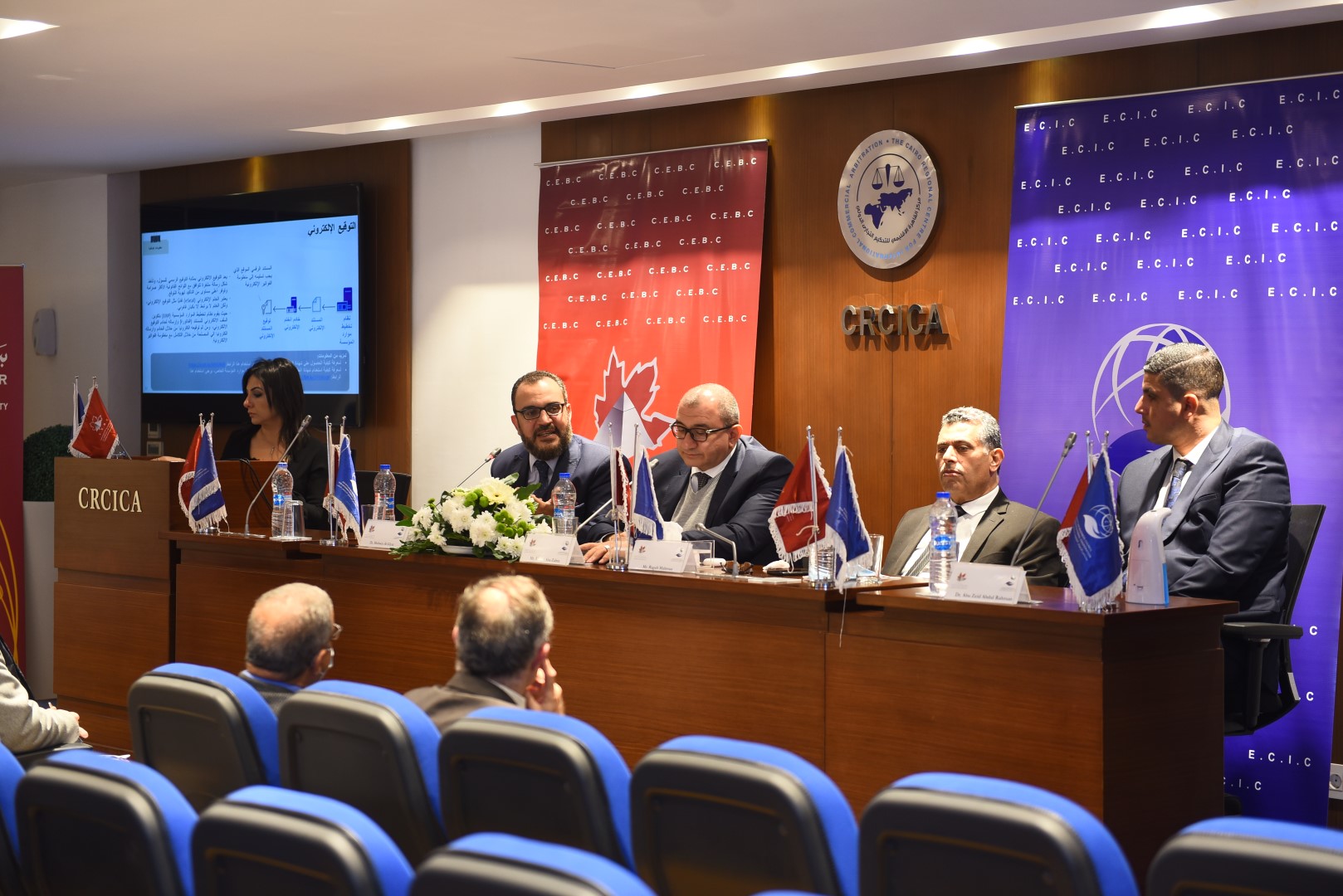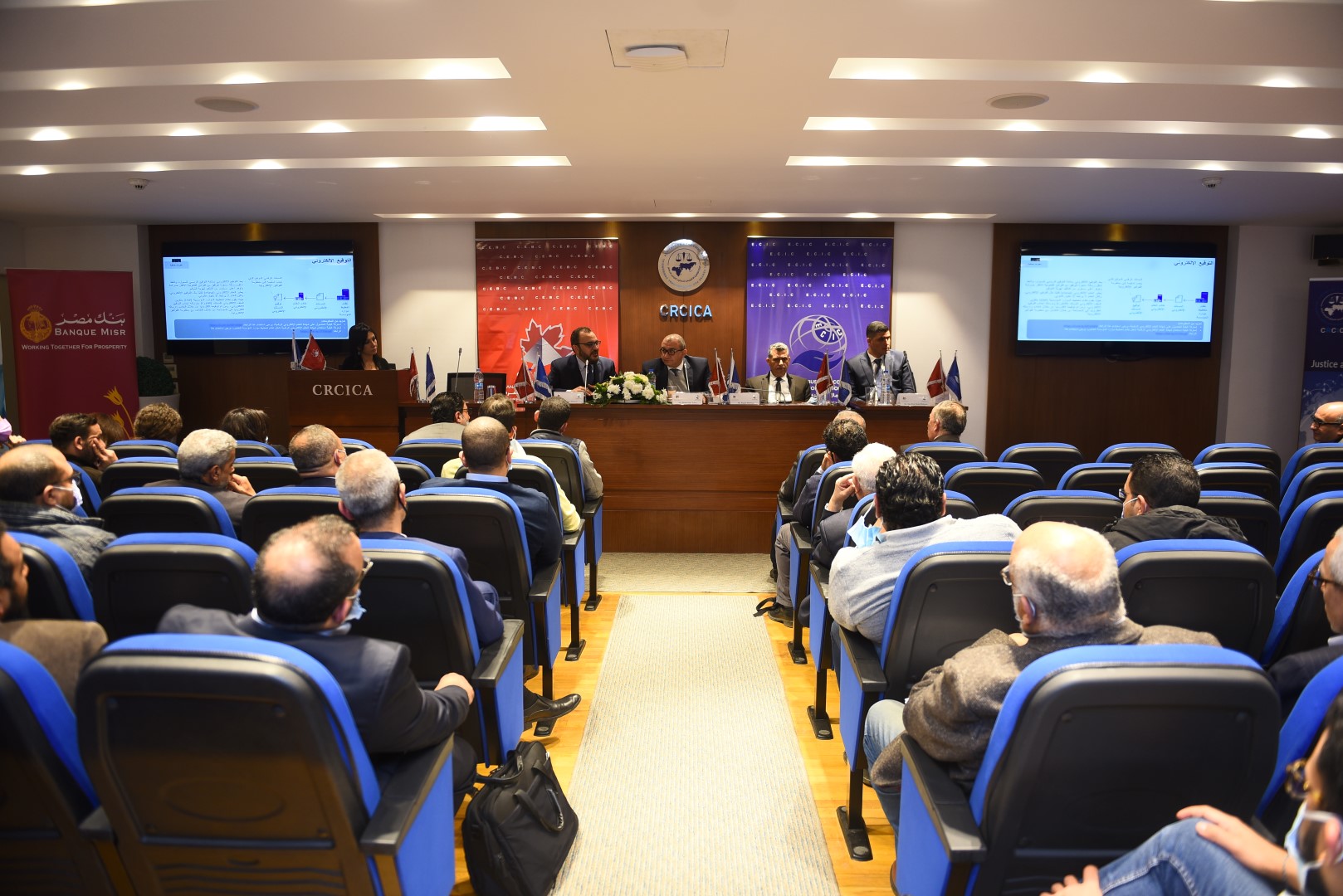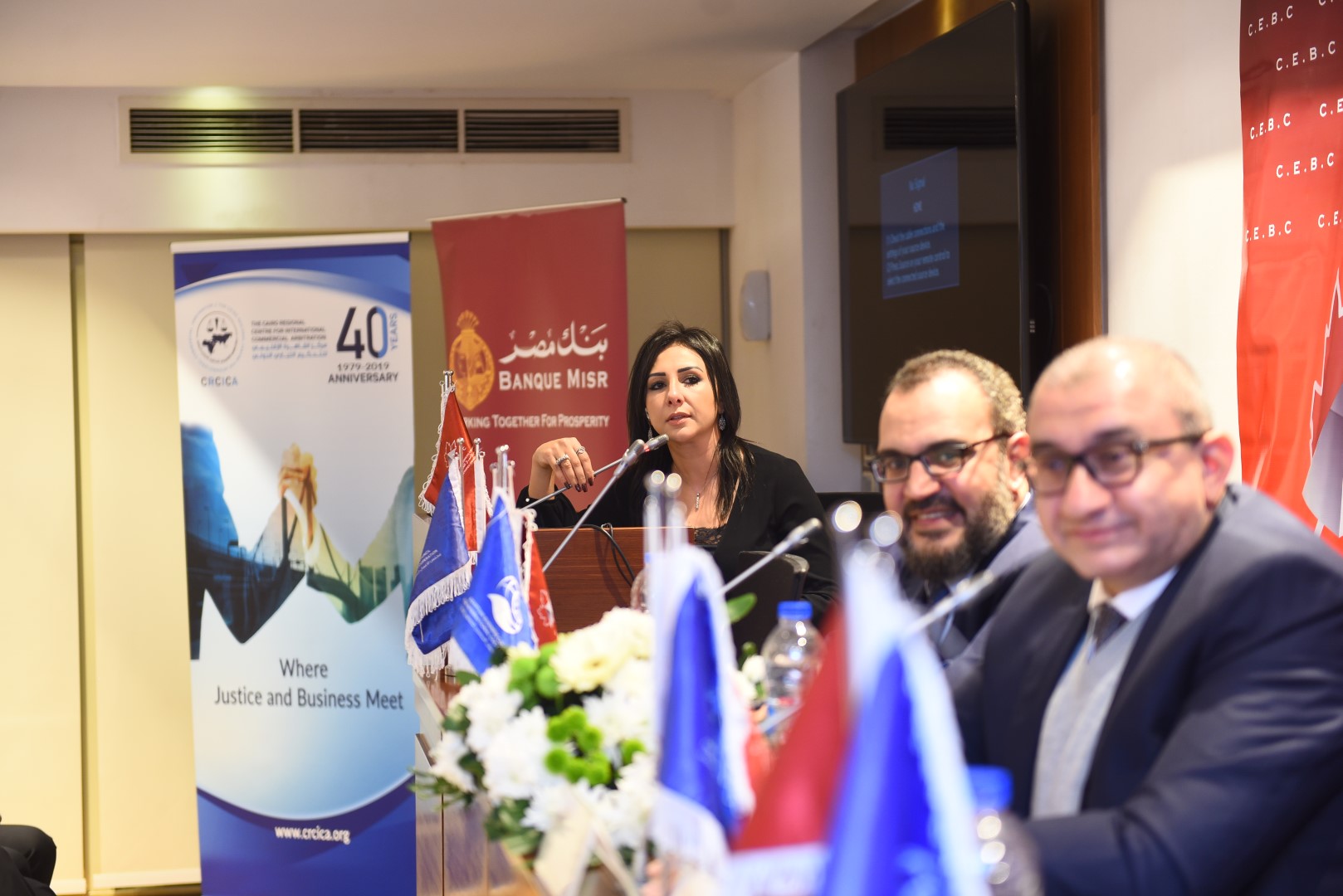
Date
Speaker(s)
Invitation
Description
The Ministry of Finance has taken great steps to modernize and mechanize the tax system, in order to simplify taxation processes and use the electronic bill, in a move to facilitate measures, stimulate the investment environment and create more jobs. However, as the system is nearing completion, there are some challenges that the companies and the business community may face in implementing these requirements.
In this context CEBC & ECIC had the honor to host Mr. Reda Abdelkader; Acting Head of the Tax Authority, Dr. Mohsen Al-Giyar; Managing Director of the Registrar’s Assistant & Dr. Abu Zeid Abdul Rahman; Director of the Communications Center discussing the topic “The Electronic System of the Egyptian Tax Authority (Invoice – Declarations)” And moderated by Mr. Khaled Abu Zahra; Egypt Tax Partner & GCC Tax Leader – MEC & Chairman of the Taxation and Customs Committee – CEBC & ECIC
In the opening remarks Eng. Motaz Raslan; Chairman of CEBC & ECIC; He welcomed our dear distinguished members, guests, ambassadors and thanked the reputable speakers for accepting our invitation to share the dialogue with us on all developments in the tax system; which we were keen to organize despite the circumstances we are going through, due to our strong belief in the importance of getting acquainted with the new developments and developments in the tax system to facilitate the citizens on one hand and raise the efficiency of the system from another side.
He began the speech saying Here, I would like to refer to the great cooperation between the Council and the Tax Authority, which appears in the series of periodic meetings that we are keen to organize to exchange dialogue and discussion about the problems and demands of businessmen and investors from the tax system, as well as the efforts of the tax authority to facilitate procedures and the introduction of modern technology to achieve tax justice and build databases Accurate and work to integrate the informal sector into the formal sector.
In this context, I am pleased to congratulate the guests of our symposium on the great achievement by launching the first phase of the electronic invoice, which I believe contributes to laying the foundations for integration between the tax system and the tax community in a way that helps in facilitating dealers and improving the investment climate. I think that they have a lot and a lot to talk about in this meeting about the national project to modernize and automate the tax administration system, which enjoys great support from the political leadership, and I think that this project will transfer the tax system to another place and will contribute to improving Egypt’s ranking in many global indicators of business performance.
At the end He added that certainly, there are many inquiries from the attendees of the guests of our symposium today about this new achievement, and I will leave the dialogue management to Professor Khaled Abu Zahra, Chairman of the Tax and Customs Committee of the CEBC & ECIC; Before I leave the conversation, I say that we are lucky that we meet and negotiate despite these circumstances, at a time when many countries have closed, and this is a favor from God, which we call to spare us the dangers of this epidemic, and here I commend the government’s efforts in dealing with this pandemic, whether in the first or second wave, and we have confidence Great in good management and crossing it peacefully.
Mr. Khaled Abu Zahra; Egypt Tax Partner & GCC Tax Leader – MEC & Chairman of the Taxation and Customs Committee – CEBC & ECIC; After thanking CEBC & ECIC and all distinguished attendees; the main partner of the Middle East Consulting Office in Egypt and the Gulf and the head of the Tax and Customs Committee of the Egyptian-Canadian Business Council, praised the technological development and mechanization that government institutions are currently witnessing, especially the Egyptian Tax Authority, which is consistent with Egypt’s vision 2030 for digital transformation, saying that the electronic invoice system is part of the It is part of the complete automation system for the Egyptian Tax Authority, and given the importance of taxes in relation to the public resources of the state, there is constant keenness by the Council to follow the developments that occur in the tax system, pointing out that the electronic invoice system is a later stage of the electronic declarations system, and aims to eliminate the economy Parallelism, avoiding tax evasion, and facilitating the work of preparing returns, as well as the work of inspection.
Then He reviewed the experiences of other countries in applying the electronic invoice system, such as the experience of Jordan, Saudi Arabia, some countries of the European Union, China, and Indonesia, explaining that Egypt is walking with the global community in implementing the electronic invoice system, and is a precedent for many countries in this regard.
Mr. Ragab Mahrous, General Director of the Technical Office of the Head of the Egyptian Tax Authority, stated that from the beginning of next January, the natural persons financiers are required to submit their tax returns electronically, and they will not be accepted in paper, thus completing the tax return system automated by the authority, and he reviewed the legislation and legislative amendments issued during The year 2020 and how it will affect the tax return, saying that there are a number of tax amendments that were issued in the year 2020 and are related to the declaration, and they are Law No. 16 of 2020, which is related to the renewal of Law No. 79 of 2016 regarding ending tax disputes and amending some provisions of the issued income tax law Law No. 91 of 2005, as well as Law No. 170 of 2020 regarding symbiotic contribution to confront some of the economic repercussions resulting from the spread of epidemics or the occurrence of natural disasters, by deducting 1% of the salaries of state workers and 0.5% of pensions for a period of 12 months.
Mr. Mahrous also reviewed Law 182 of 2020 regarding canceling the exemption on returns on treasury bills and bonds or capital gains resulting from dealing in these bills and bonds from income tax, as well as the Medium, Small and Micro Enterprises Development Law No. 152 of 2020.
Mr. Reda Abdelkader, Head of the Egyptian Tax Authority affirmed that the department is keen to implement the instructions of the Minister of Finance regarding the necessity of spreading the tax awareness of all developments that occur to the tax system, especially the development projects that the authority is currently witnessing, and receiving full support and care from the Minister of Finance, which would contribute to The tax authority provides tax services with the highest degree of accuracy, efficiency, and ease.
He also said, according to a press statement, today, Friday, that there is fruitful communication between the Egyptian Tax Authority, all institutions of the tax community, and civil society to achieve tax awareness on a large scale, stressing the continuous coordination and cooperation between the authority and the Canadian Egyptian Business Council in raising awareness of the most important tax developments And especially the electronic system for the benefit, whether from electronic tax returns, as well as the electronic invoice system.
With regard to the electronic invoice system, Dr. Mohsen Al-Giyar, Managing Director of the Registered Assistance Department at the Egyptian Tax Authority, said that the work of the first phase of the electronic invoice system began on November 15, according to the decision of the Egyptian Tax Authority Chairman No. (386) for the year 2020, applying to 134 companies Noting that the second phase of implementing the system will start on February 15th and include 347 companies according to the decision of the head of the Egyptian Tax Authority No. This is to generalize the application of the system to the rest of the tax community.
Al-Giyar explained that the electronic invoice system is the creation of a central system that enables the tax authority to follow up all commercial transactions between companies with each other, by exchanging data for all invoices in a digital form instantly, stressing that this system will help in the digital transformation of commercial transactions and deal with the latest Technical methods, formally validating the invoice source, recipient and contents.
He continued by saying that the electronic invoice is a standard document that has components, a unified form, design, and content that have been defined and regulated by the laws and regulations for making the electronic invoice, and it also requires the existence of a valid and effective electronic signature for the source of the invoice, as the system allows complete security of the invoice data exchanged between companies. It also includes proof of legal authority for the users of the system.
Dr. Al-Giyar explained the integration procedures with the electronic invoice system, explaining the short-term benefits that will accrue to the financiers after the application of the electronic invoice system, as well as the benefits that will accrue to them after its application in the long run.
Dr. Abu Zeid Abdul Rahman, Director of the Communications Center explained that the authority is keen to communicate with the tax community in all its segments through all means of communication, as the department’s integrated communication center responds to all inquiries and questions that come to it regarding tax laws, electronic declarations, and the invoice system. It also follows up on the response to complaints related to technical support, through the hotline 16395.
He pointed out that according to the Unified Tax Procedures Law No. 206 of 2020, which was issued on October 19 and was implemented from October 20, the VAT registrant must submit his tax return during the month following the end of the tax period, other than what was it is implemented under the Value Added Tax Law No. (67) Of 2016, this provides for the submission of tax returns within the two months following the end of the tax period.
Dr. Abdel-Rahman said that the VAT declaration for September 2020 will be submitted until November 30, 2020, under the Value Added Tax Law No. (67) for the year 2016, indicating that the tax return for October 2020 will be submitted following Article No. (31) Paragraph (a) of the Unified Tax Procedures Law No. 206 of 2020, no later than November 30, pointing out that the Integrated Communications Center sends an SMS to the registrants to amend the tax return submission dates under the Unified Tax Procedures Law No. 206 of 2020.


















